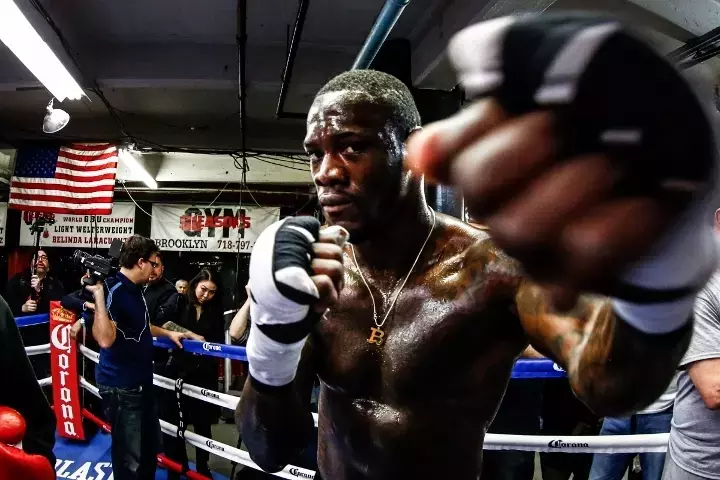
Renowned boxing figure Nelson Lopez Jr., whose life has been deeply intertwined with the sport since birth, is now steering former heavyweight champion Deontay Wilder back to greatness. With a legacy rooted in promoting and managing fighters, Lopez aims to rekindle Wilder's career through strategic planning and unwavering support. This journey begins in Wichita, Kansas, where Wilder fights Tyrrell Anthony Herndon on June 27, marking the first step toward a potential showdown with Anthony Joshua.
A Veteran's Vision for a Champion's Return
In the heart of Florida’s Pahokee, Nelson Lopez Jr., the son of a Filipino mother and Cuban father, carries forward his family’s boxing tradition. At 47, he has spent decades shaping the careers of numerous athletes. His latest venture involves reviving the illustrious career of 39-year-old Deontay Wilder. Born into a world dominated by boxing—his father was both a promoter and trainer—Lopez has always been immersed in the sport. From managing fighters like Kanat Islam to mentoring prodigies such as Alycia Baumgardner, Lopez has consistently demonstrated his passion for nurturing talent.
This collaboration with Wilder stems from Lopez's extensive network within the industry. When approached about organizing an event featuring Wilder, Lopez seized the opportunity, leveraging his expertise as CEO of Trigon Combat and founder of the Global Combat Collective (GCC). These organizations focus on developing amateur fighters into professionals while fostering innovative partnerships across combat sports.
The matchup against Herndon at Charles Koch Arena signifies more than just another fight; it represents the beginning of what Lopez calls "legacy reloaded." After suffering consecutive defeats, including knockout losses to Joseph Parker and Zhilei Zhang, Wilder requires a strong performance to regain momentum. Lopez insists that rest and recovery were crucial factors in Wilder's recent struggles, emphasizing the importance of patience in rebuilding a champion's career.
Wichita offers an ideal setting for this comeback. As Lopez explains, hosting events in overlooked locations can generate significant economic impact while drawing local fans eager to witness world-class action. By complementing Wilder's bout with promising regional talents, Lopez ensures maximum engagement from the audience.
Beyond Herndon, Wilder plans to compete again in December, though details remain scarce. Ultimately, Lopez envisions culminating this resurgence with a marquee clash against Anthony Joshua in 2026—a dream match eagerly anticipated by boxing enthusiasts worldwide.
For Lopez, guiding Wilder aligns perfectly with his lifelong mission of elevating fighters. Their partnership exemplifies mutual respect and shared ambition, creating a compelling narrative poised to captivate fans globally.
From a journalist's perspective, Lopez's involvement signals a fresh start for Wilder. His meticulous approach underscores the value of experience and strategic thinking in revitalizing careers. Moreover, choosing unconventional venues like Wichita highlights creativity in promoting the sport. This story serves as a reminder that success often hinges on surrounding oneself with capable allies who share one's vision. For readers, it inspires confidence in Wilder's future prospects while celebrating Lopez's enduring contributions to boxing.
